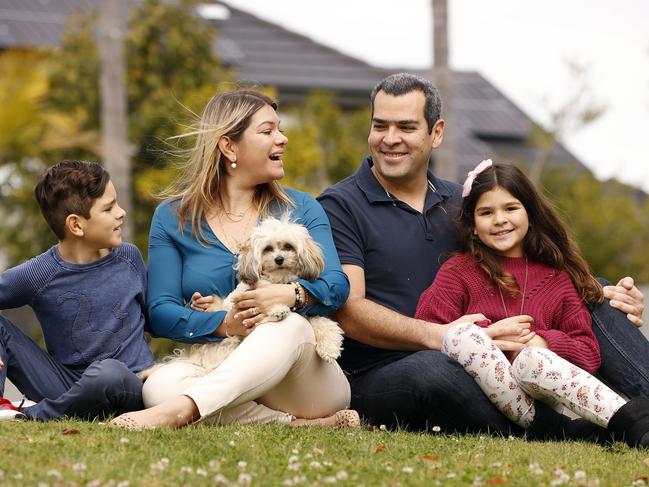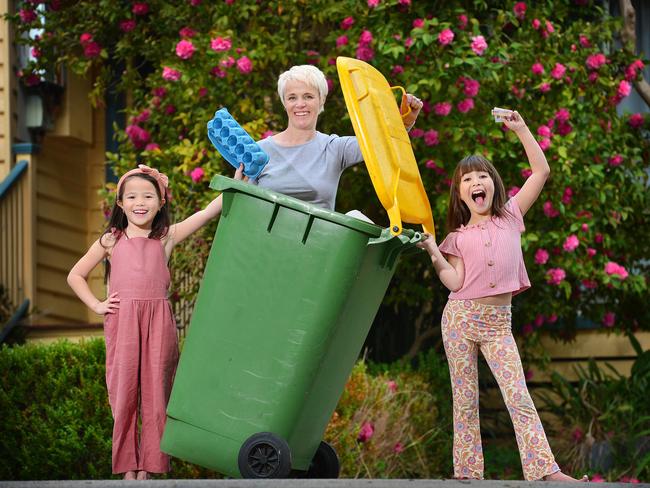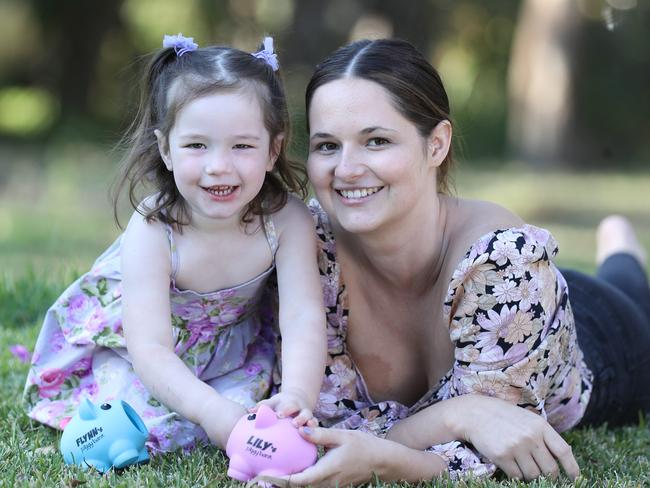Pocket money wage gap: The Australian kids who get the most and least amount of cash
When it comes to pocket money, one gender is getting paid more than the other, as the Aussie kids getting the most cash are revealed. SEE THE FULL LIST
National
Don't miss out on the headlines from National. Followed categories will be added to My News.
Australia’s gender wage gap doesn’t discriminate by age, with boys receiving more pocket money than girls each week.
Comparison site Finder’s latest Parenting Report found parents gave their sons an average of $10.30 a week, while their daughters received $9.30 — amounting to a yearly difference of $52.
The poll of more than 1000 parents across the nation with children under the age of 12 also found that Covid had not completely stifled pocket money growth, with many children receiving more cash than they did a year ago.
Of those who receive a weekly allowance, one in three were lucky enough to get a pay bump. More than half were receiving the same amount of money, while almost one in 10 were being given less.

Dr Kimberley O’Brien, Principal Child Psychologist at the Quirky Kid Clinic, said she didn’t believe paying boys and girls different pocket money amounts would fly in most families.
“It’s possible some families pay more than others and then overall boys are getting paid more,” Dr O’Brien said.
“But if it does exist, I think over time that gap will decrease … because so many girls are so aware of the glass ceiling and pay inequality, and they’ll be starting to push back on this earlier in life.”
The survey has also exposed how generous parents in each state are.
Victorian kids were found to be the nation’s biggest earners, raking in an average of $12.10 in pocket money each week.
Children in NSW were given $11.35 weekly, while those in Western Australia received about $9.30.
Queensland’s youngsters got about $6.35 a week, and South Australia’s pocket money recipients collected roughly $4.70.
Neuroscience communicator and learning specialist Jill Sweatman said pocket money should be awarded to children when they complete tasks, and the benefits could be more than just financial.
“Working for extra pocket money can be a good lesson and encourage an entrepreneurial spirit in a child like doing something special to contribute to a project for a parent or extra for a grandparent or friend in need,” Ms Sweatman said.
Dr O’Brien recommended paying a weekly allowance based on a child’s age (for example, $5 a week for a 5-year-old), paid monthly as that is cycle for many people in the workforce.
Eva Yordi and her husband Andreas have been giving pocket money to their two children — Sophia, 8, and Andreas, 9 — for about three years.
Ms Yordi said that rather than giving them a set amount each week, the children have tasks with which they can accumulate points worth 20 cents each when completed.
Walking their puppy, Peanut, is five-point job (worth $1), while collecting the mail is a one-point task (20 cents).


“When we first started giving them pocket money, we started with little things first, and then we wanted to give them more sense of responsibility,” Ms Yordi said.
“Then we wanted to teach them more about kindness and helping people.
“For example, we came from Venezuela, and their grandmother does not have good English. So sometimes I told them, if you teach her these words in English, I’ll give you 20 cents.”
‘IT’S NOT JUST ABOUT MONEY’
Kristy Bautista said daughters Mila, 9, and Evie, 7, get $2 for unloading the dishwasher and $5 if they help out with other bigger cleaning tasks around the house.
“I’ve always believed in pocket money for chores as it gets them involved in both helping around the house as well as learning about money and saving for things they want,” Ms Bautista said.

“It’s not just about teaching them the value of money, it’s about learning that everyone has to contribute to the household so the work isn’t always left to mum and dad.”
Finder money expert Alison Banney said giving pocket money to kids could help instil good financial habits.
“Pocket money can help children to understand how transactions work and teach them how to save from an early age,” Ms Banney said.
She said many kids savings accounts had bonus interest perks if the balance was under a certain amount.
‘THEY ARE SUPER PROUD TO EARN IT’

Mother of two Angel Crowden said she puts the kids to little tasks around the house so they are earning their own pocket money.
“Simple things like feeding the chickens, making the beds or helping us with the dishes,” Ms Crowden said.
“They are super proud to earn their own money and normally tend to save it for a particular toy they want, money always works.”
Originally published as Pocket money wage gap: The Australian kids who get the most and least amount of cash


